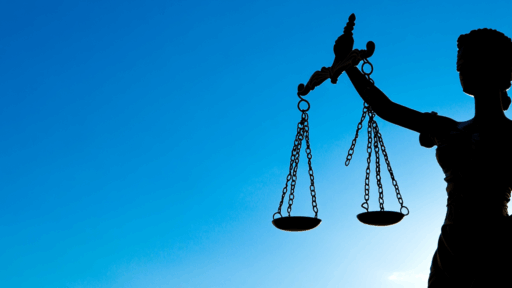Choosing the right deposition attorney can significantly impact the outcome of a legal case. Whether you’re a business owner facing litigation or an individual involved in a personal dispute, the attorney you select will play a crucial role in navigating the complexities of the legal process. It’s essential to ask the right questions to ensure you’re hiring someone who is not only experienced but also a good fit for your specific needs.
In this article, we’ll explore the essential questions to ask when interviewing potential deposition attorneys. These questions will help you gauge their expertise, understand their approach, and determine if they have the skills necessary to represent your interests effectively. By being well-prepared, you can make an informed decision and feel confident in your choice of legal representation.

Understanding the Role of Deposition Attorneys
Deposition attorneys play a critical role in the discovery phase of legal cases. They conduct depositions, which involve questioning witnesses under oath before a trial. This process aims to gather evidence, assess the credibility of witnesses, and formulate strategies for the case.
Their duties include:
- Preparing Witnesses: They educate witnesses about deposition procedures and possible questions. This preparation ensures coherent and honest testimony.
- Conducting Depositions: They ask relevant and probing questions to extract critical information. They must be adept at identifying inconsistencies or weaknesses in testimonies.
- Analyzing Testimony: They review and analyze the information gathered to form a comprehensive understanding of the case. This analysis helps in developing legal strategies for trial.
- Reporting Findings: They provide summaries and detailed reports based on depositions. These findings are crucial for building a strong case narrative.
Deposition attorneys also handle legal documentation and ensure compliance with procedural rules. Their expertise reduces the risk of procedural errors that could negatively impact the case. Understanding these roles underscores the importance of selecting a competent deposition attorney.
Preparing for the Interview
Careful preparation ensures the selection of a competent deposition attorney. Start by understanding the key areas to focus on during your pre-interview work.
Researching the Attorney
Online research provides insight into the attorney’s background. Look for:
- Credentials: Verify law school and bar association memberships.
- Experience: Review years in practice, especially in depositions.
- Reputation: Check client reviews, peer endorsements, and case outcomes.
- Specialization: Ensure expertise in relevant legal areas.
- Publications: Read articles or books authored by the attorney on deposition topics.
- Availability: Match schedules to allow for an uninterrupted meeting.
- Format: Determine whether the interview will be in-person or virtual.
- Duration: Allocate enough time for thorough questioning.
- Preparation: Confirm documents and questions to bring to the meeting.
- Follow-Up: Arrange a follow-up session if initial discussions require more detail.
Key Questions to Ask
Selecting the right deposition attorney is crucial. The following questions help in evaluating potential candidates effectively.
Experience and Expertise
Ask about the attorney’s experience specifically with depositions. Inquire about the number of depositions they’ve conducted, the types of cases they’ve worked on, and any notable successes. Specific questions include:
- How many depositions have you overseen in the past year?
- What types of cases have you primarily handled?
- Have you dealt with cases similar to mine?
Approach and Strategy
Understanding the attorney’s methodology can reveal how they plan to handle your case. Check their approach to preparing witnesses, conforming with legal requirements, and managing unpredictable scenarios. Key questions include:
- What is your strategy for preparing witnesses for depositions?
- How do you handle difficult opposing counsel or hostile witnesses?
- Can you explain your process for ensuring compliance with legal procedures?
Communication and Availability
Effective communication and availability are essential for a successful attorney-client relationship. Clarify their responsiveness and preferred communication methods. Relevant questions include:
- How often do you update your clients about case progress?
- What is your preferred method of communication?
- Are you available for urgent consultations if needed?
Fees and Billing Practices
Understanding the financial aspect is crucial. Asking about their fees, billing practices, and any additional costs ensures transparency. Important questions include:
- Can you provide a breakdown of your fees?
- Do you offer flat-rate billing or work on an hourly basis?
- Are there any additional costs I should be aware of?
These questions guide the selection process, ensuring the chosen deposition attorney meets all necessary qualifications.
Assessing the Responses
Evaluating potential deposition attorneys requires analyzing their answers to your questions. Clear, thorough responses signal competence and reliability.
Red Flags to Watch For
- Vague Answers: Responses lacking specificity or detail indicate a possible lack of experience. For example, an attorney unable to discuss precise cases or strategies may not have the requisite hands-on experience.
- Overconfidence: Promises of guaranteed outcomes reveal unrealistic expectations. Attorneys should acknowledge the complexities of legal cases.
- Poor Communication: If the attorney struggles to articulate their strategy or you find their explanations unclear, this can lead to misunderstandings later.
- Inconsistent Information: Contradictory statements during the interview may signal disorganization or a lack of honesty.
- Lack of Availability: Indications that the attorney is too busy or overcommitted could affect their dedication to your case.
- Detailed Experience: Attorneys who can provide specific examples of past cases and outcomes demonstrate depth in their field. For instance, discussing their role in notable depositions proves their expertise.
- Transparent Strategies: Clear outlines of their approach to handling depositions show their strategic planning abilities.
- Effective Communication: Attorneys who explain their processes clearly and respond promptly to inquiries exhibit strong communication skills.
- Honesty About Challenges: Honest discussions about potential challenges and realistic assessments of your case indicate a trustworthy and pragmatic attorney.
- Commitment to Case: Statements reflecting the attorney’s prioritization and availability suggest they can dedicate adequate time to your case.
Making Your Decision
Evaluating responses from potential deposition attorneys extends beyond initial impressions. Clear, detailed answers show competence. Look for attorneys who offer specific examples from past cases to illustrate their experience. Avoid those who provide vague responses or seem overconfident without substantiating their claims.
Weighing Expertise and Experience
Consider the attorney’s expertise in deposition cases. Attorneys with years of experience in similar cases show proficiency. An attorney might mention handling complex depositions involving technical subjects or dealing with difficult witnesses. These instances highlight their skill level. Focus on the quality of their experience and ensure it aligns with the specific needs of your case.
Assessing Strategy and Communication
Effective strategy and communication are vital. Ask about their approach to preparing for depositions. Reliable attorneys will outline a clear method, including collaborating with you, reviewing pertinent documents, and identifying key points to cover. Confirm their willingness to communicate regularly and keep you informed throughout the process. Attorneys should explain legal strategies plainly without using jargon.
Confirming Availability and Commitment
The availability of the attorney is crucial. Ensure their schedule allows sufficient time for your case. Evaluate their commitment by how they manage their current caseload. An overbooked attorney might struggle to provide the attention your case needs. Confirm that they will personally handle your deposition rather than delegating it to less experienced team members. Personalized attention guarantees better outcomes.
Analyzing Fees and Billing Practices
Understanding the attorney’s fees and billing practices helps avoid unexpected costs. Ask for a transparent breakdown of fees and clarify whether they charge a flat fee, hourly rate, or retainer. Inquire about additional costs like travel or miscellaneous expenses. Evaluate if their billing practices align with your budget and if they offer flexible payment arrangements. Ensure there’s a clear agreement to prevent disputes later.
Considering Client Feedback and References
Client feedback provides valuable insights. Request references or read online reviews to gauge past clients’ satisfaction. Positive, detailed feedback signals reliability. Red flags include recurring negative comments about poor communication, lack of professionalism, or unsatisfactory results. Honest, consistent reviews help you make an informed decision.
Evaluating potential deposition attorneys thoroughly ensures you select a competent, experienced professional, align with your case needs, and support successful legal outcomes.
Secure Your Legal Success with BlueNotary’s Notarization Services
Choosing the right deposition attorney is crucial for a successful legal outcome. By asking essential questions and evaluating their responses, individuals can ensure they select a competent professional.
Ensure your legal documents are authenticated and legally binding with BlueNotary’s secure and efficient online notarization platform. Our services provide the reliability and security needed to support your legal case.
Enhance your legal strategy with trusted notarization solutions. Explore how BlueNotary can assist in fortifying your deposition process. Visit BlueNotary today to learn more about securing your legal documents and achieving success with the right deposition attorney. BlueNotary: Your partner in effective legal strategies!
Frequently Asked Questions About Interviewing Deposition Attorneys
Q1. What is the attorney’s experience with depositions?
Understanding the attorney’s experience with depositions is vital. Ask about the number of depositions they have handled, the complexity of those cases, and their success rate in using depositions to benefit their clients.
Q2. What is the attorney’s strategy for handling depositions?
Inquire about their general approach and specific strategies for handling depositions. This includes how they prepare, the types of questions they typically ask, and how they manage objections and unexpected developments.
Q3. How does the attorney prepare clients for depositions?
Preparation is key to a successful deposition. Ask how the attorney will help you prepare, including reviewing documents, practicing responses, and addressing any concerns you may have.
Q4. What is the attorney’s communication style and availability?
Effective communication is essential. Determine how often you can expect updates, the preferred methods of communication, and their availability to address urgent matters or questions you may have.
Q5. What are the costs associated with the attorney’s services?
Understanding the financial aspect is crucial. Ask about their fee structure, any additional costs you might incur, and if they offer payment plans or other financial arrangements.







